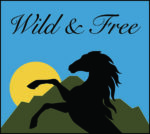With the cooperative agreement, signed in 2015, VRWPA agreed to implement humane fertility control measures to reduce the population. Thanks to American Wild Horse Campaign four volunteers were sent to The Science and Conservation Center in Billings MT to take the Wild Horse Immunocontraception Certification Training under Dr. Jay Kirkpatrick. In September 2015, mares in the Virginia Range were darted with PZP vaccine for birth control. In November 2017, Nevada Department of Agriculture (NDA) terminated the agreement that had allowed VRWPA and other local horse advocate groups to administer PZP, at no cost to the State of Nevada. In the early part of 2019, the Governor, Steve Sisolak, was approached by local business leaders of companies primarily located at Tahoe-Reno Industrial Center to consider restarting the wild horse birth control program. On April 9, 2019, darting resumed on the Virginia Range and continues today.
Biology of Porcine Zona Pellucida Immunocontraception
What is PZP and How Does It Work?: A non-cellular membrane known as the zona pellucida (ZP) surrounds all mammalian eggs. The ZP consists of several glycoproteins (proteins with some carbohydrate attached), one of which, ZP3 is thought to be the sperm receptor (the molecule which permits attachent of the sperm to the egg during the process of fertiliaztion). The PZP vaccine is derived from the ZP protein from pig eggs. When this vaccine is injected into the muscle of the target female animal, it stimulates her immune system to produce antibodies against the vaccine. These antibodies also attach to the sperm receptors on the ZP of the female’s own eggs and distorts their shape, thereby blocking fertilization. (see Paterson and Aitkin 1990).
Thus far PZP has been a successful form of contraception in wildlife because (1) it has prevented preganancy an average of 90% or greater of the time in treated animals, (2) it can be delivered remotely by small darts, (3) the cantraceptive effects are reversible, (4) it is effective across many species, (5) there are no debilitating health side-effects even after long-term use, (6) it has almost no effects on social behaviors, (7) the vaccine cannot pass through the food chain and (8) it is safe to give to pregnant animals (see Kirkpatrick et al. 2009).
Assateague Island National Seashore has clearly been the single most successful wild horse fertility control project ever conducted. It has been ongoing for over 28 years.
For more information on PZP, visit The Science and Conservation Center
